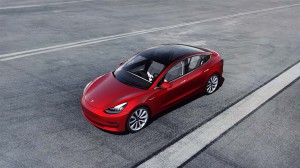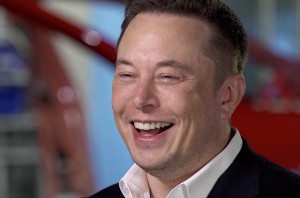Tesla chief Elon Musk extended his vision of a world dominated by electric vehicles by traveling to Shanghai, China, to break ground for the company’s newest plant, Gigafactory 3.
Always the optimist, Musk said he expects construction on the massive 210-acre facility to be complete by the middle of this year with finished products rolling off the assembly line and out the doors by the end of this year.
“With the resources here, I think we can build the Shanghai Gigafactory in a record time,” Musk said during the rain-soaked ceremony.
It should be noted that Musk meets very few deadlines, but his enthusiasm and glass-half-full mentality was shared by local officials. “Rain represents fortune,” Shanghai Vice Mayor Wu Qing said, according to Bloomberg News. “The rain today could predict that Mr. Musk and Tesla will make a big fortune here.”
(Tesla misses sales target, cuts prices – and investors are not amused. Click Here for the story.)

Tesla new plant in China will produce lower-priced versions of the Model 3 as well as the upcoming Model Y.
Musk said the plant would have a capacity of 500,000 units annually when at full production and will produce the Model 3 and Model Y for sale in China. The more expensive Model S and Model X as well as the higher-priced Model 3 sedans will continue to be built in the U.S. and shipped to China.
The $5 billion investment comes at a tenuous time in relations between the U.S. and China. The ongoing trade war is enjoying a bit of a cease-fire with tariff rates reduced to levels allowing for trade to between the two countries to resume at closer to normal levels.
(Click Here for more about Tesla hustling to build new plant in China.)
However, there are no guarantees that the volatility of the relationship between the two economic powerhouses won’t rear its ugly head again, making things more complicated. The upside is that the new plant will help insulate Tesla from some of that.
The new plant isn’t just a hedge against punitive tariffs. There are signs that the Chinese economy is slowing, and being in the country and keeping all of the profits generated by the facility will be critical to its long-term success.
(Tesla has a smelly Easter egg in its latest infotainment system – a fart app. Click Here for more.)
In addition to the slowing economy, there is a wave of electric-vehicle competitors heading Tesla’s way in China. BMW, Mercedes and Audi all have plans to begin local production of electric SUVs. The company also faces competition from Chinese brands, such as BYD Auto and BAIC Group. They already sell tens of thousands of hybrid and battery-electrics.


Can we please stop calling them gigafactories? This publication should know that a factory with a yearly capacity of 500k units is hardly out of the norm in the automotive world.
Gigafactory is the name they use. It is not a descriptor on our part but what they call the battery plant.
Paul E.